First Person: soprano Elizabeth Atherton on the decimation of the classical music sector in Wales | reviews, news & interviews
First Person: soprano Elizabeth Atherton on the decimation of the classical music sector in Wales
First Person: soprano Elizabeth Atherton on the decimation of the classical music sector in Wales
Singer who began her career on contract with Welsh National Opera clarifies savage cuts by Welsh and English Arts Councils
Is it an opera company’s role to avert climate change? Should a circus troupe have to prioritize promoting the Welsh language? Is the purpose of a dance ensemble to bring about social justice? Should these issues be the main focus for our arts organisations? Surely not, and yet…
Just a glance at the six core funding principles with which the Arts Council of Wales (ACW) judges whether the arts organisations it exists in order to support are worthy of public subsidy shows that these are the very measures by which they are deciding which companies in Wales will be prioritised.
Not excellence. Not quality of product – neither of which are mentioned once in the arm’s-length body’s investment review guidelines. It seems that those currently holding the purse strings for our cultural institutions view the arts as a forum to enact ideological mission of their (or, truthfully, the current government’s) determining, as opposed to creating cultural experiences of inherent value and excellence, worthy of funding for their own sake and for the joy and enrichment that they bring to countless people’s lives. (Pictured below: Rhianon Passmore MS, Chair of the Senedd's Cross Party Group for Music, Delyth Jewell MS, Chair of the Culture Committee, and Elizabeth Atherton)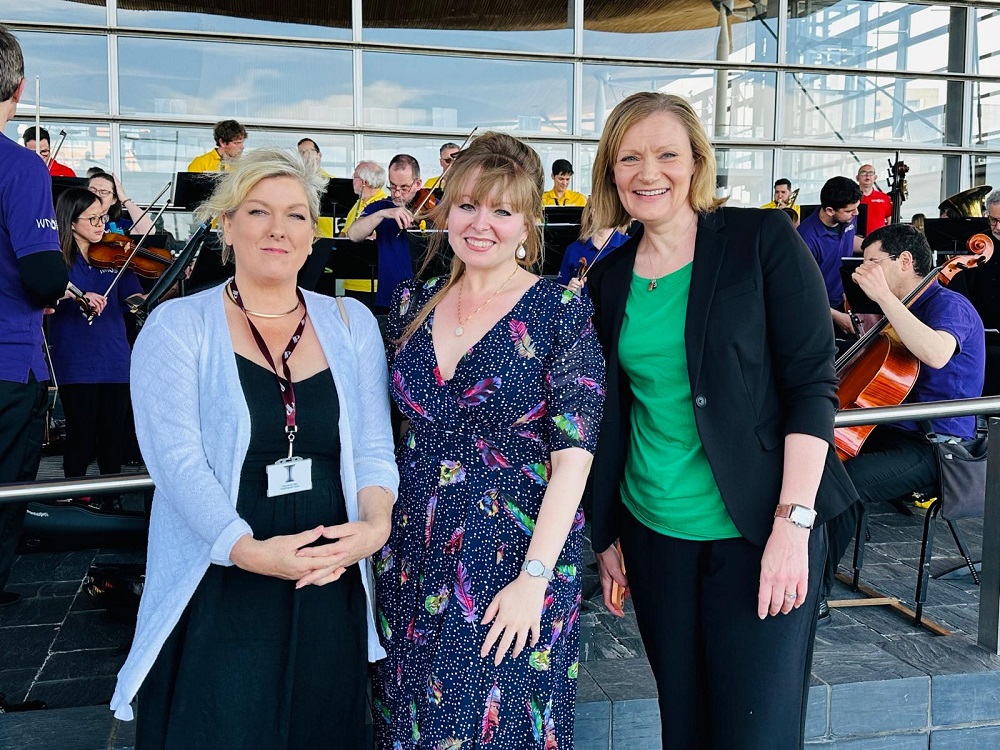
Most of us in the arts would agree that the abandonment of creative arts education in schools has been devastating. We need high-quality music education back in schools, starting from when a child first enters the system and enabling regular class learning, theory, history, exposure to different genres, opportunities to learn an instrument in one-to-one lessons with highly trained teachers and access to instruments, the chance to sing in choirs, to play in ensembles, to perform to audiences. Who wouldn’t agree with that?
But should it be the duty of arts organisations to supply that musical education? Or is it the government’s responsibility to fund and provide education to our children as part of the curriculum? Sure, the work that many arts organisations carry out with young people is incredibly valuable, but the funding that they receive from the arts councils should not be dependent on how much they do, where they do it, or how they do it. Just like promoting Welsh or mitigating climate change, education should be seen as an added bonus that our arts organisations commit to, not the be-all-and-end-all. The work they do in these areas should supplement what our elected governments provide, acting as an adjunct – not do the job for them. Pictured below: members of the WNO Chorus at the protest. 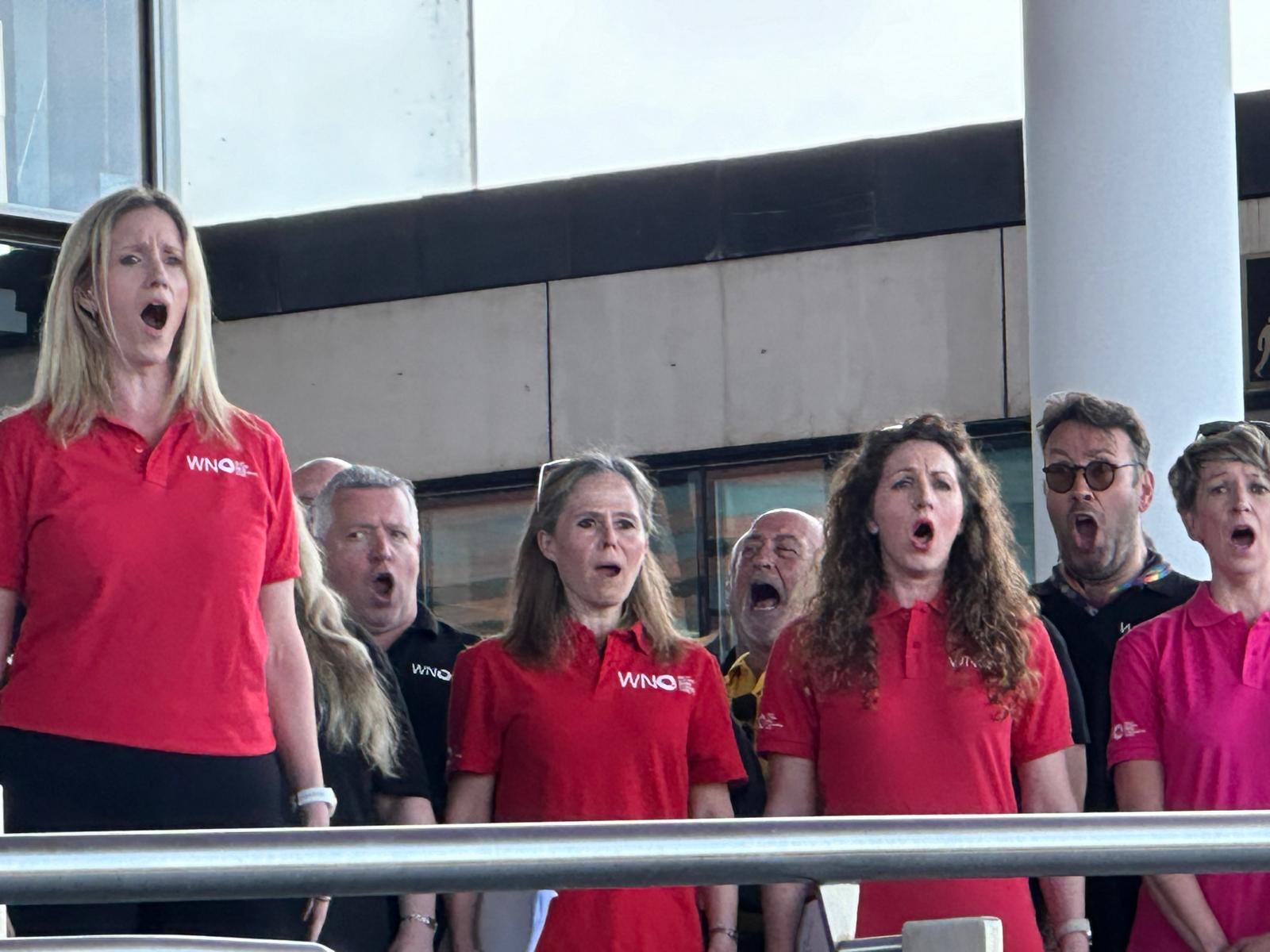
Whilst the community engagement, education and health work that WNO carries out is undoubtedly incredibly valuable, at what point does the organisation cease to be an international opera company whose purpose is to produce operatic productions of the highest calibre and morph into a community outreach provider which mounts the odd opera on the side? Is this really what we want Wales’s only full-time (for now, at least) opera company to become?
As well as ACE and ACW’s enthusiasm for our arts organisations to educate, their push towards devolution and localism is a fine aspiration in many ways, bringing the arts into communities, giving them ownership, and hopefully increasing participation. But what does it mean for our large, national companies? Those who produce work on a scale that smaller, local organisations simply cannot? Those who represent the UK on the world’s stage and attract talent here to work and tourists here to holiday? Those who rival the greatest international arts companies?
Whilst the grassroots companies are vital for the health of our sector, so too is the top of the pyramid, and by thinking that just by sharing the resources around a bit and taking away from the top to give more to the foundations everything will be ok – no, better even – it’s a false premise.
The arts ecosystem needs every bit of the infrastructure supported to a sufficient level to thrive. By decimating the largest companies that necessarily need the lion’s share of resources we will all be the poorer, as they will ultimately cease to be the powerhouses that they have been, our children beginning their journeys will have nothing to aspire to, and our audiences will dwindle as only the rich will be able to afford to go to large-scale productions. 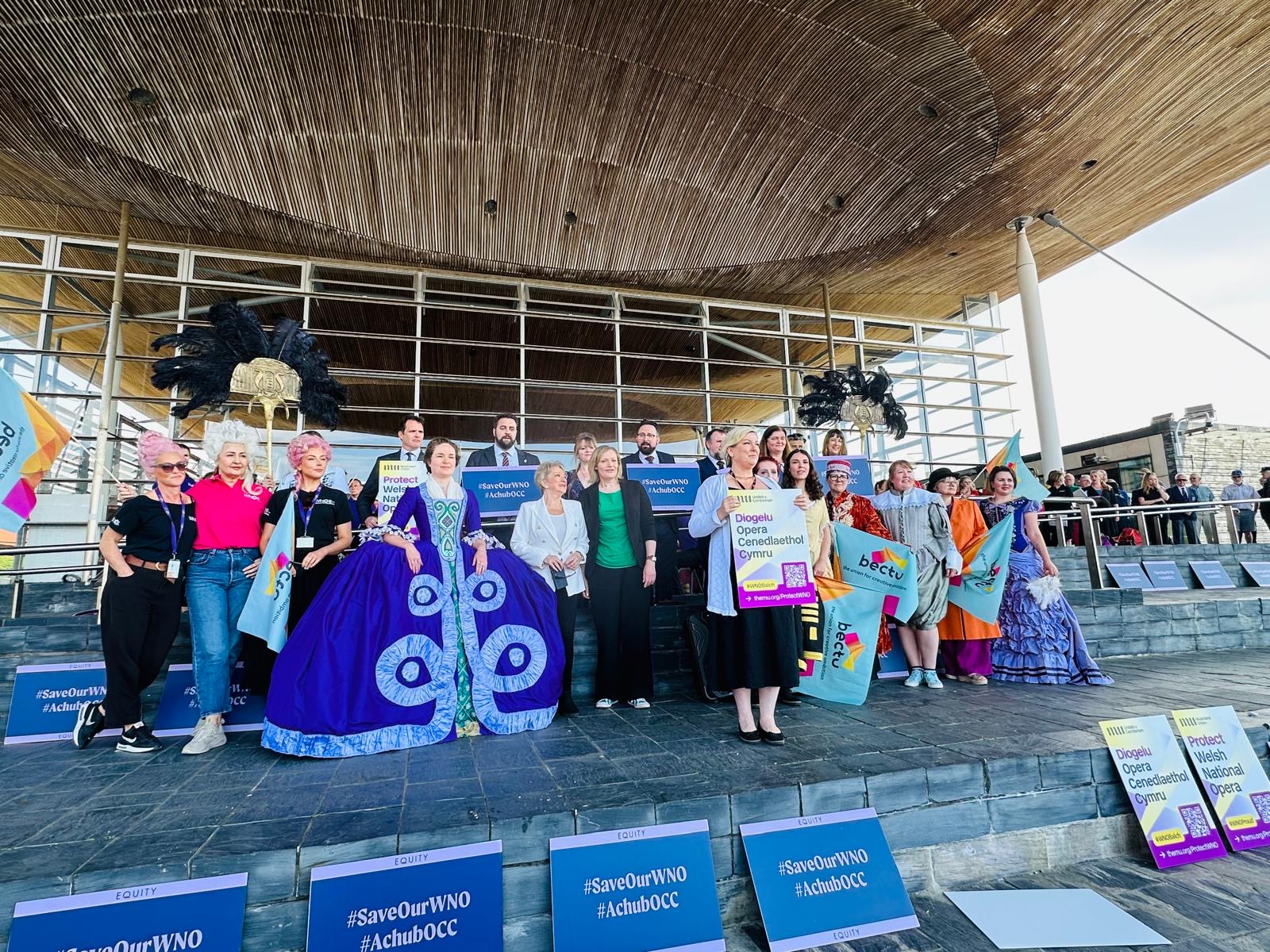
Anyway, is it even appropriate for our arts councils to dictate a creative vision, such as Let’s Create? Surely the whole purpose of the body is to remain neutral, not to have its own agendas to push, but to support arts organisations to imagine their own artistic purpose? I hardly think that when Jennie Lee, daughter of a Scottish miner and committed socialist, wrote the first White Paper on the arts in 1965, she would have approved of ACE and ACW deciding what the companies they owe their existences to must pursue as their overriding aims. As Lord Keynes had said some twenty years earlier when establishing the Arts Council of Great Britain, “The arts owe no vow of obedience”.
And so back to Wales where the arts are literally in crisis right now. Funding by Welsh Government (where Labour has held power for twenty-five years) to ACW has been reduced by about 37% in real terms since 2010. As a proportion of the Welsh Government budget, cultural spending is one of the lowest in Europe, standing at less than 0.15% of total overall expenditure – ten times less than the European average.
Despite this continued lack of financial investment or commitment to the arts that has been shown by Welsh Government, ACW managed to find an extra £900,000 to distribute to arts organisations in its latest funding round, meaning that twenty-three new organisations were given multi-year funding for the first time. Good news, one might think – unless you’re an opera lover.
Mid Wales Opera, surely a fine example of all you would have thought ACW would support in a mid-scale, touring opera company, which for decades has successfully taken opera to the provinces and provided artists at the beginning of their careers with their first professional opportunities, was slammed with a 100% cut to their funding last autumn. The damning verdict of ACW was that the company’s application “does not excite”, ignoring the fact that it uses tried and tested methods to reach numerous communities who would be without opera otherwise, commissions brand new work, employs community choruses, develops Welsh artists just starting out, and provides education work to hundreds of children. 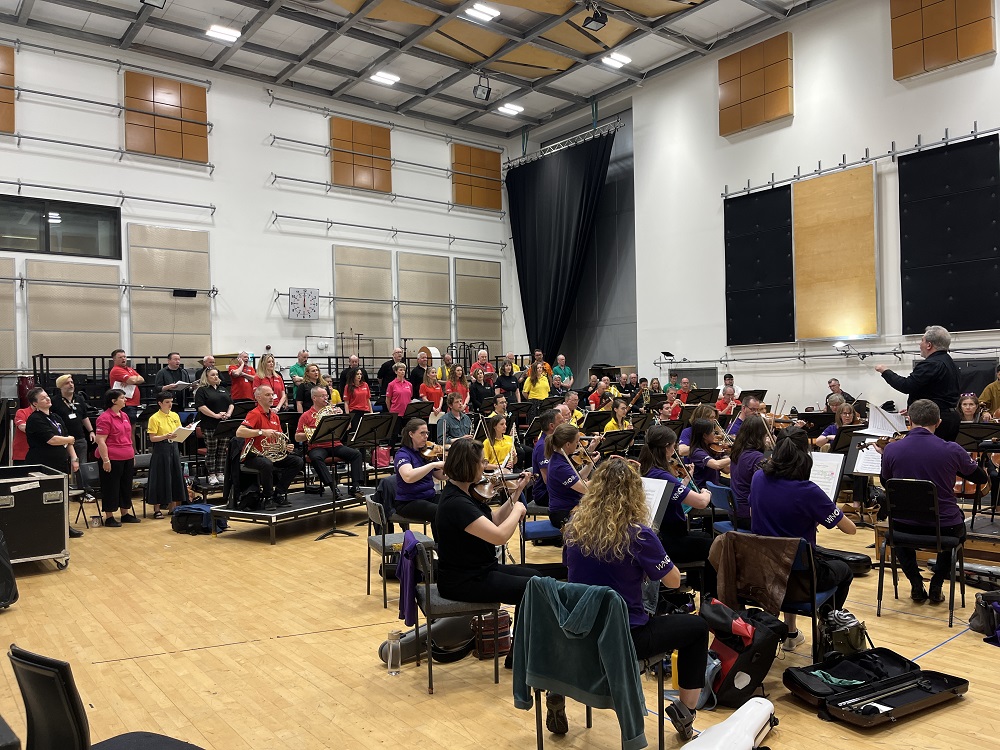
As if this double-whammy to classical music in the Land of Song weren’t enough, the Royal Welsh College of Music and Drama suddenly announced that it is completely axing its junior department and from this academic year is the only conservatoire in the UK without regular junior provision.
Questions must surely be asked as to how the college got into the position that they saw cancelling all their training for young aspiring musicians and actors as a necessary evil without raising what must have been on the cards for some time with external agencies and government before crisis point was reached. More fundamentally though, Wales needs to ask itself whether it wants a thriving arts sector – whether classical music and opera are even important any more.
What value does an opera company bring to a small nation anyway? Does Wales really need one when we have a crumbling NHS and failing school system?
I would argue yes, yes – and yes again. Not simply for the benefits in terms of health, education and engagement, but for the inherent value that the art form has of itself and the joy and enrichment that it brings to thousands of people’s lives.
With new leadership in place, both in Westminster and the Senedd, serious questions need to be addressed and imminent action taken if our classical music sector is to be rescued in Wales. Inquiries into both ACE and ACW are urgently required – no more hiding behind the “arm’s-length body” principle by politicians. If the arts councils are not accountable to government when things have gone so badly wrong, then who holds the checks and balances? 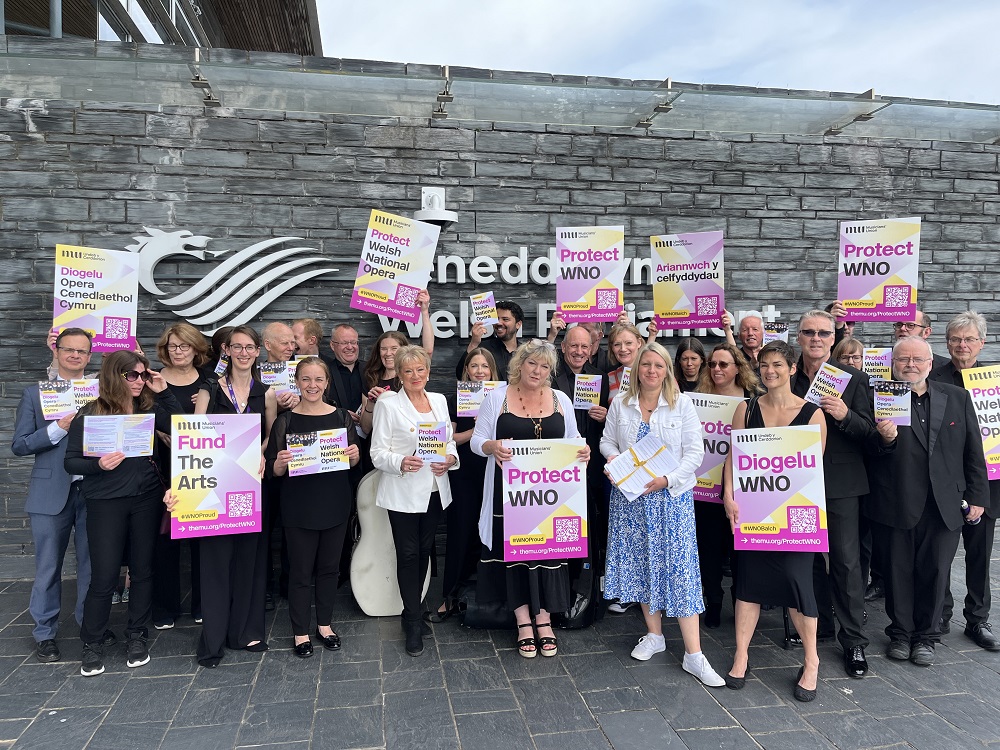
Wales needs a pipeline of talent right through – from children accessing music education, through conservatoire/university training, then small- and mid-scale companies where artists starting out can cut their teeth, and finally our national opera company and symphony orchestra (BBC NOW) which rival the best in the world and of which our small nation should be incredibly proud.
“The arts are essential to any complete national life. The nation owes it to itself to sustain and encourage them,” spoke Sir Winston Churchill. Oh, that our politicians today might understand the wisdom in those words before it’s too late.
UPDATE: It has recently been revealed that a review into ACE that had been begun prior to the General Election has quietly been closed by the new Labour administration in Westminster, despite them promising one in their arts manifesto Creative Growth. In a letter to Elizabeth, Sir Chris Bryant MP wrote that “it would not be appropriate for us as Ministers to intervene regarding funding decisions [about WNO] made by arm’s-length bodies” and that “the public body review was paused during the election and has now been closed”.
Explore topics
Share this article
Add comment
The future of Arts Journalism
You can stop theartsdesk.com closing!
We urgently need financing to survive. Our fundraising drive has thus far raised £49,000 but we need to reach £100,000 or we will be forced to close. Please contribute here: https://gofund.me/c3f6033d
And if you can forward this information to anyone who might assist, we’d be grateful.

Subscribe to theartsdesk.com
Thank you for continuing to read our work on theartsdesk.com. For unlimited access to every article in its entirety, including our archive of more than 15,000 pieces, we're asking for £5 per month or £40 per year. We feel it's a very good deal, and hope you do too.
To take a subscription now simply click here.
And if you're looking for that extra gift for a friend or family member, why not treat them to a theartsdesk.com gift subscription?

Comments
Thank you Liz for your
Thank you Liz for your passionately argued piece. I am equally appalled that the Arts Council has forsaken its role as champion of excellence in the arts.
Thanks for your message, Jane
Thanks for your message, Jane. Both ACE and ACW have lost their way, I'm afraid. But I will not stop fighting for the company where my career began. There is already so little opera left in the UK - we cannot afford to lose one of our last remaining full-time, national companies.
If it's not 'appropriate for
If it's not 'appropriate for ... ministers to intervene regarding funding decisions made by arms-length bodies ' then when those arms length bodies make such disastrous decisions, it's high time ministers sent them packing, and took back direct control till they find a model for arts administration that's an improvement on its predecessor.